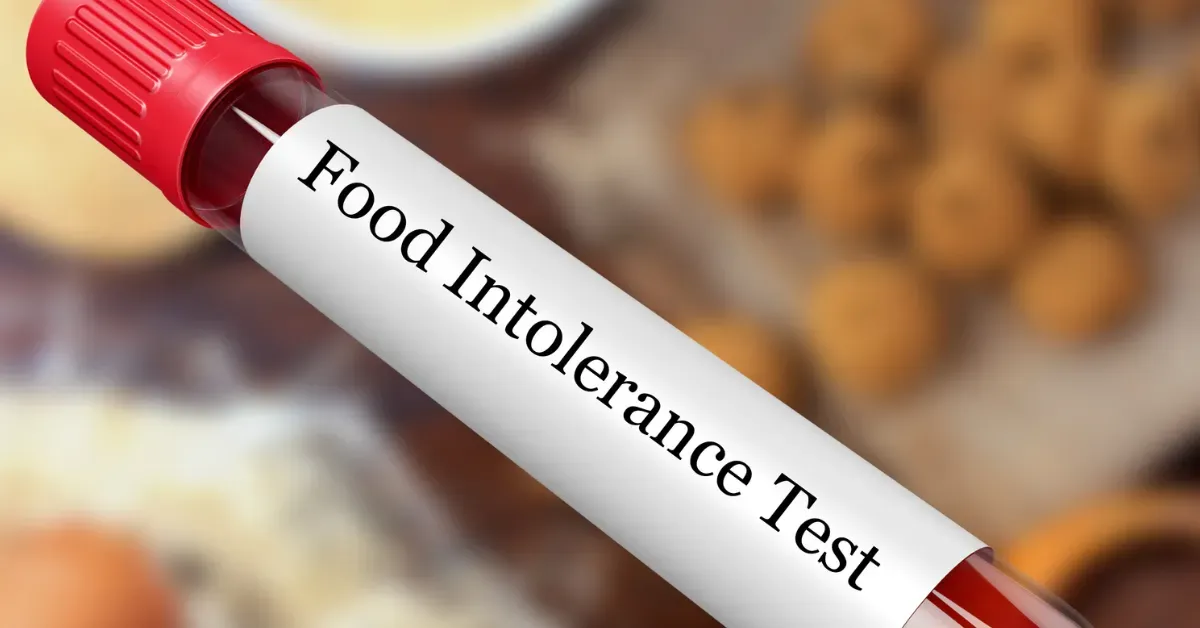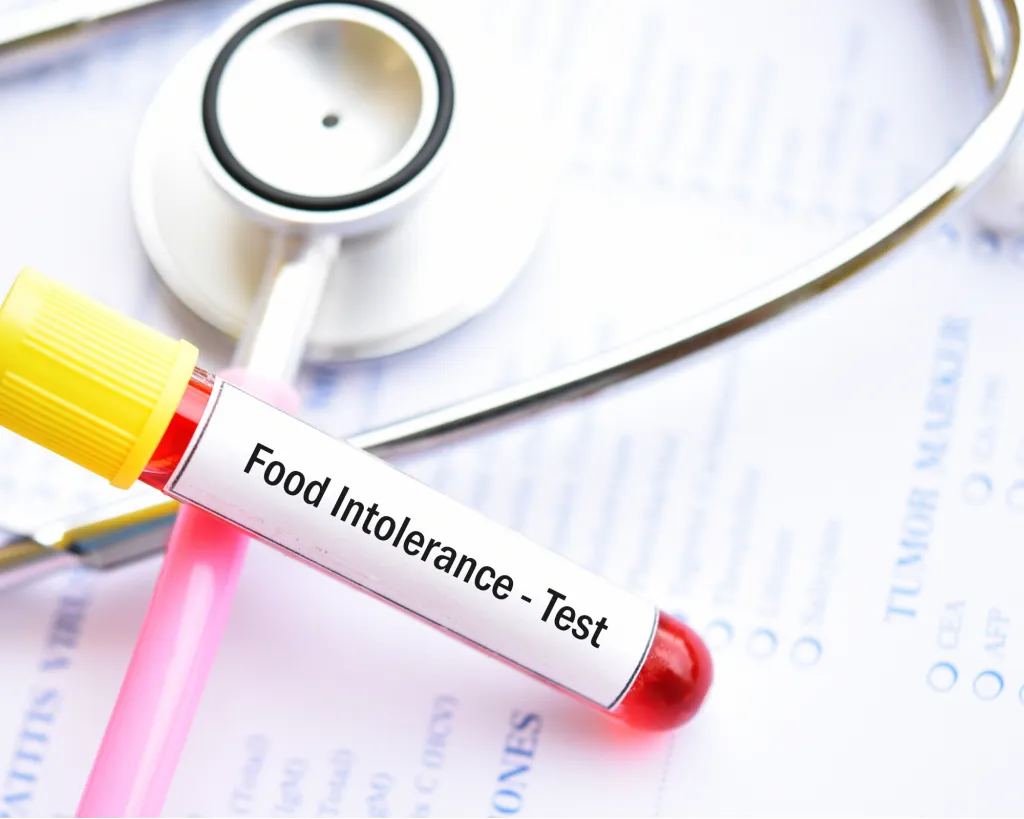Can a Gastroenterologist Test for Food Intolerance? There are food intolerances and digestive disorders that millions of people around the world suffer from, giving them the uncomfortable symptomatology of bloating, diarrhoea, or simply stomach pain.

Many of these individuals wonder whether a gastroenterologist, an organ specialist in digestive system disorders, can diagnose food intolerance.
Food intolerances differ from food allergies; while food allergies involve the immune system and can lead to life-threatening reactions, intolerances occur because the digestive system fails to properly digest a certain food.
The article discusses whether a gastroenterologist deals with testing food intolerance, the tests performed, and how those test results might differ from a procedure used by another set of practitioners.
Can a Gastroenterologist Diagnose Food Intolerance?
Yes! A gastroenterologist can diagnose food intolerance; on the other hand, a gastroenterologist goes about that differently.
Gastroenterologists consider digestive function, the state of good gut health, and patterns related to symptoms rather than focusing on immune reactions.
1. Food Intolerance is Most Usually Diagnosed by Gastroenterologists
2. Lactose Intolerance- Unable to digest lactose because of a probable low concentration of the enzyme, lactase.
3. Fructose Malabsorption- Abdominal distension and diarrhoea caused by an inability to absorb fructose.
4. Histamine Intolerance- Trouble digesting histamine-rich foods (like aged cheese, wine).
5. FODMAP Intolerances- Sensitivity towards fermentable carbohydrates contained in fruits, vegetables, and grains.
Grasping Food Intolerance versus Food Allergy

Before testing, it is very important to make a distinction between a food intolerance and a food allergy, as these terms are often used interchangeably.
1. Food Allergy: The immune system reacts to food allergy cases by eliciting often severe reactions such as urticarial reactions, swelling, or sometimes anaphylaxis.
Some of the common allergens are peanuts, shellfish, and eggs. They are usually diagnosed by an allergist by either skin prick tests or blood IgE tests.
2. Food Intolerance: With food intolerance, the patient is said to be unable to digest certain foods and thus experiences gastrointestinal (GI) discomfort.
Some usual suspects include lactose, gluten, and FODMAPS (fermentable carbohydrates). Symptoms include:
● Bloating
● Flatulence
● Diarrhea or constipation
● Abdominal cramps
Since an allergy test is meant for allergy detection and food intolerance is unrelated to immune responses, it is not possible for an allergy test to detect it. This is within the diagnosis scope of a gastroenterologist.
How Food Intolerances Are Diagnosed
A gastroenterologist makes the diagnosis of food intolerance via a series of methods and tests involving the history given by the patient, an elimination diet, and some special tests.
1. Detailed Medical History & Symptom Journal: The first step is to obtain information about symptoms, diet, and family history. Patients might be asked to keep a food diary for reaction recording purposes.
2. Elimination Diet (Gold Standard)
The better way to test for food intolerance involves:
● Avoiding the suspected foods for 2-6 weeks
● Slowly reintroducing the foods while observing symptoms again
● Confirms trigger foods by observing the reaction evidenced by symptoms
3. Hydrogen Breath Test (For Lactose & Fructose Intolerance). Measures hydrogen in breath after ingestion of lactose or fructose. High hydrogen = bad digestion.
4. Stool Acidity Testing (For Lactose Intolerance in Children). Increased acidity of stools occurs when undigested lactose ferments in the colon, suggesting lactose intolerance.
5. Blood Tests (Not Very Useful)
Some tests check for :
● Igg antibodies (contested, not accepted by many)
● Celiac’s disease (to rule out gluten allergy)
6. Endoscopy and Biopsy (If Celiac or Gut Damage Is Suspected). The gastroenterologist may conduct an endoscopy to view the small intestine in a scenario where celiac disease is a possibility.
Why Would You See a Gastroenterologist Instead of an Allergist? Whereas allergists tend to treat Ige-mediated reactions, gastroenterologists specialise in:
● Digestive enzyme deficiencies
● Gut motility disturbances
● Bacterial overgrowth in the small intestine (SIBO)
● Irritable Bowel Syndrome (IBS)
Most of those with a food intolerance, in reality, have IBS, which a gastroenterologist is trained to diagnose and treat.
Food Intolerance Tests Are Limited

Not all food intolerances have a definitive test method. A lot of the diagnoses stem from elimination diets and symptom diaries. On the other hand:
● IGG blood tests for food sensitivity are not scientifically supported
● Most do-it-yourself intolerance tests are questionable
● Symptoms of intolerance can mimic other GI disorders
When to See a Gastroenterologist
You should consider visiting your gastroenterologist when you have the following symptoms:
● Constant bloating, gas, or diarrhoea
● Unexplained pain in the abdomen, especially after eating
● Lactose or fructose intolerance is suspected
● Not getting better after using over-the-counter treatments
Summary
Awesome right? Gastroenterologists play an important role in the diagnosis of food intolerances by testing digestive function, performing specialised testing, and guiding individuals through elimination diets.
Although they do not perform allergy testing, they are the most suitable specialists for working out lactose intolerance, fructose malabsorption, and other food sensitivities.
Should you suspect food intolerance, booking an appointment with a gastroenterologist will help you pinpoint the exact problem and enhance your quality of life through specific dietary modifications.






